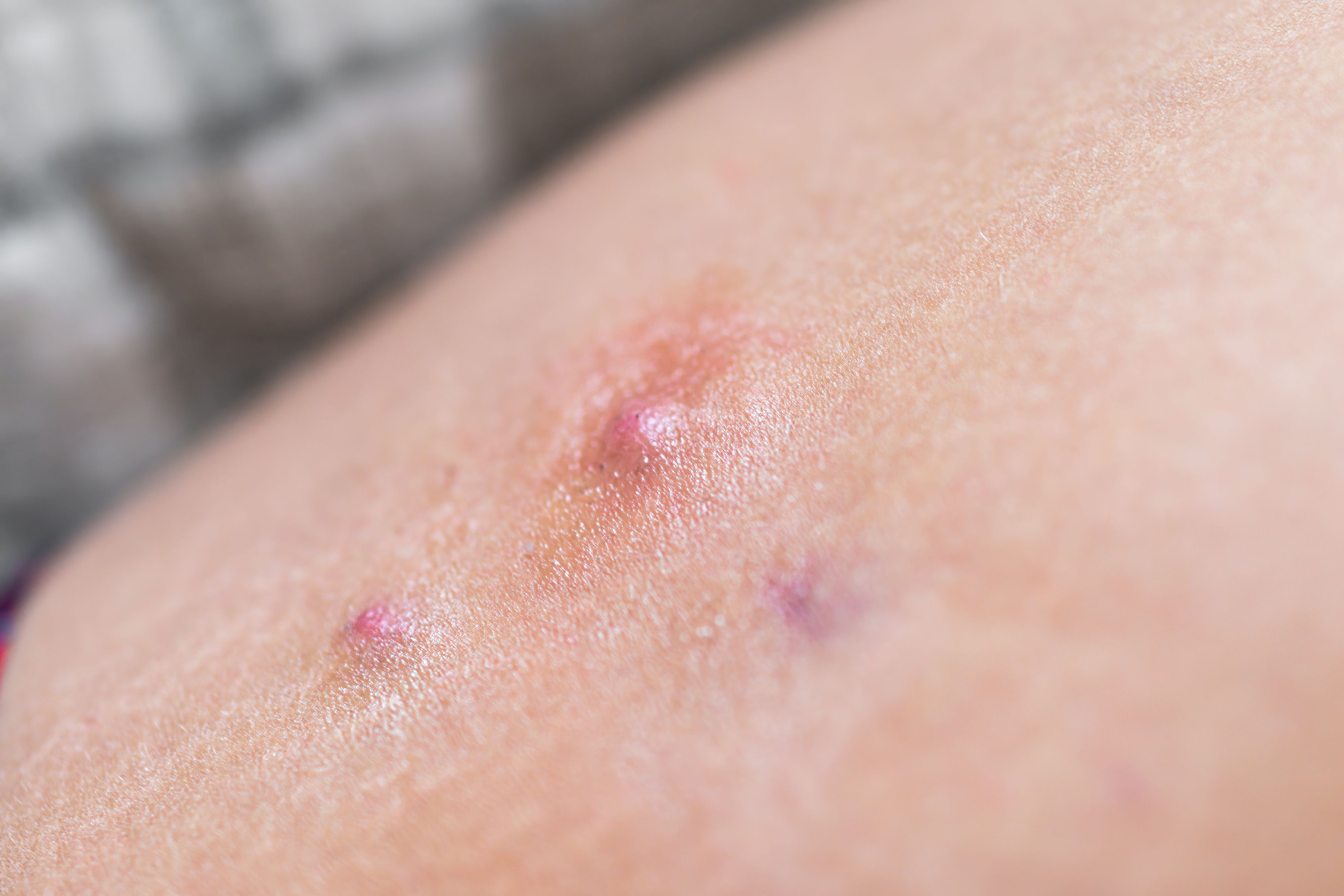- General Dermatology
- Eczema
- Alopecia
- Aesthetics
- Vitiligo
- COVID-19
- Actinic Keratosis
- Precision Medicine and Biologics
- Rare Disease
- Wound Care
- Rosacea
- Psoriasis
- Psoriatic Arthritis
- Atopic Dermatitis
- Melasma
- NP and PA
- Skin Cancer
- Hidradenitis Suppurativa
- Drug Watch
- Pigmentary Disorders
- Acne
- Pediatric Dermatology
- Practice Management
Study Gives Overview of Effective Treatments for Hidradenitis Suppurativa in Pediatric Patients
Studies showed the various treatments improved symptoms, but more trials need to be done.
Researchers reviewed 35 studies of medical treatments for hidradenitis suppurativa (HS) in patients <18 years of age and found that treatments improved HS symptoms but the results were unclear as to the extent of improvement.1
Kristina Blokhin/AdobeStock

Of the 101 patients included in the studies, 50 were overweight or obese. Of the 17 studies that included Hurley stages, most patients had Hurley Stage II disease (46.7%), followed by Stage I (36%), and Stage III (17.3%). The studies took place across 16 countries, and included 29 case studies/reports, 5 prospective trials, and 1 retrospective cohort study.
Medical treatment included biologics (n=17), oral retinoids (n=7), oral antibiotics (n=5), antiandrogen drugs (n=2), metformin (n=2), antiretroviral therapy (n=1), and thalidomide (n=1). Ages of patients ranged from 17 months to 17 years.
Of the studies of various oral antibiotic treatments reporting a response rate, 100% showed improvement in HS symptoms based on the Sartorius score. Hurley Stages I, II, and III were represented in the cohort.
Finasteride reduced frequency and intensity of symptoms for all patients on the regimen. After 2 patients discontinued taking the drug, they responded favorably when it was reintroduced. “Pediatric patients with HS are more likely to have hormonal imbalances compared with the general pediatric population.”1 It is possible that finasteride improved HS symptoms by decreasing the conversion of testosterone to dihydrotestosterone.
Of the patients treated with biologics, 93.9% showed improvement. The biologics studied included adalimumab, infliximab, anakinra, etanercept, and ustekinumab. Patients treated had Hurley Stage II or Hurley Stage III.
In the 2 studies of metformin, 50% of patients responded favorably to treatment. Hurley Stages II and III were represented in the cohort.
Patients treated with oral retinoids showed a response rate of 80%. Adverse events reported with oral retinoids included cheilitis, xerosis, dry mouth, headaches, arthralgias, and acne.
Treatment with thalidomide resulted in no improvement and antiretroviral therapy resulted in improvement in the 1 patient who was treated.
Medical treatments for HS showed overall improvement, but investigators emphasized the importance of including pediatric patients in studies examining effectiveness of treatments for HS.
Reference
- Masson R, Ma E, Parvathala N, et al. Efficacy of medical treatments for pediatric hidradenitis suppurativa: A systematic review. Pediatr Dermatol. 2023;1-14. doi:10.1111/pde.15404
